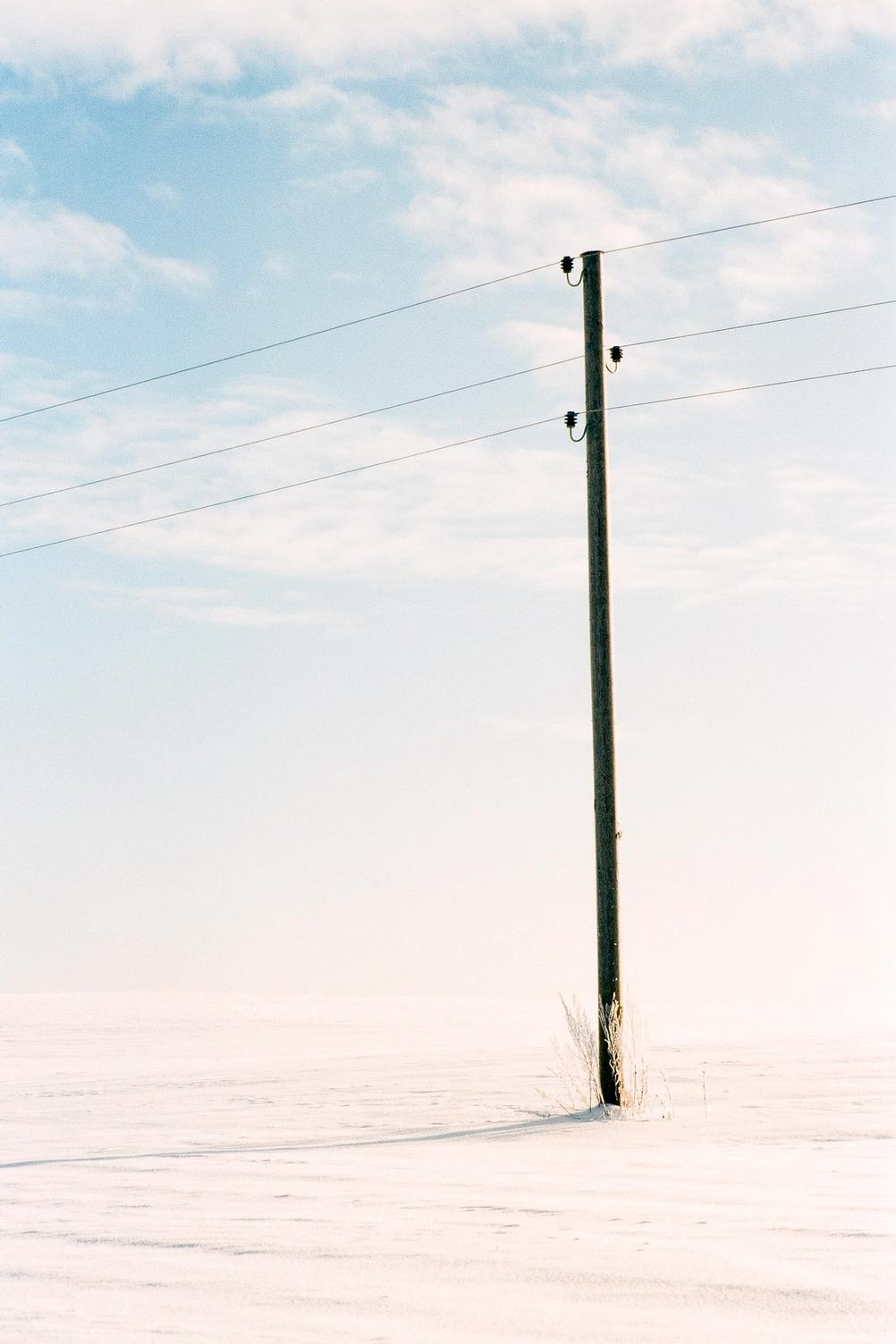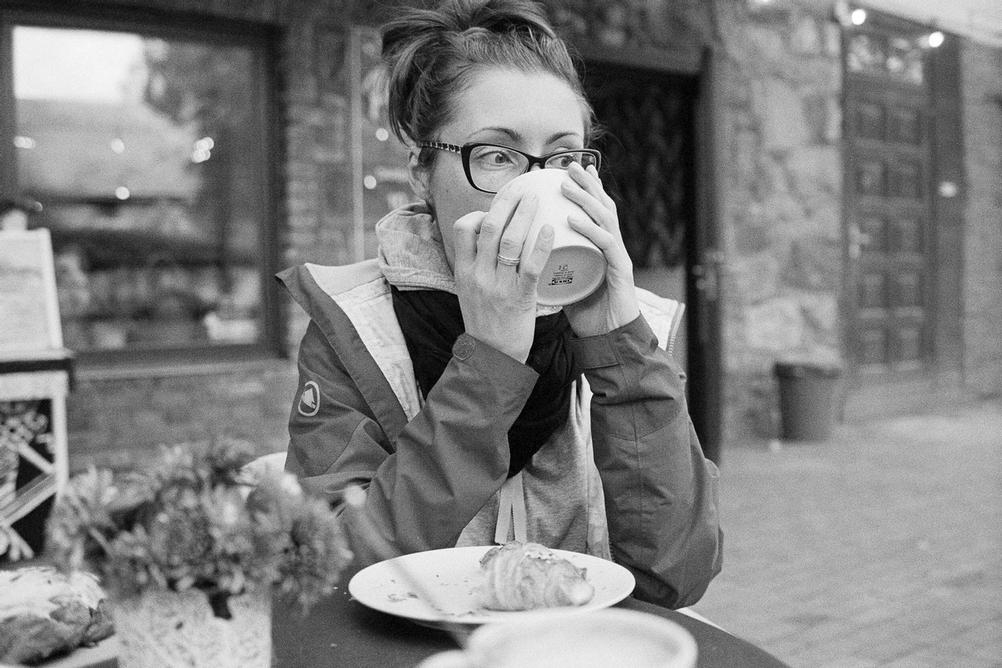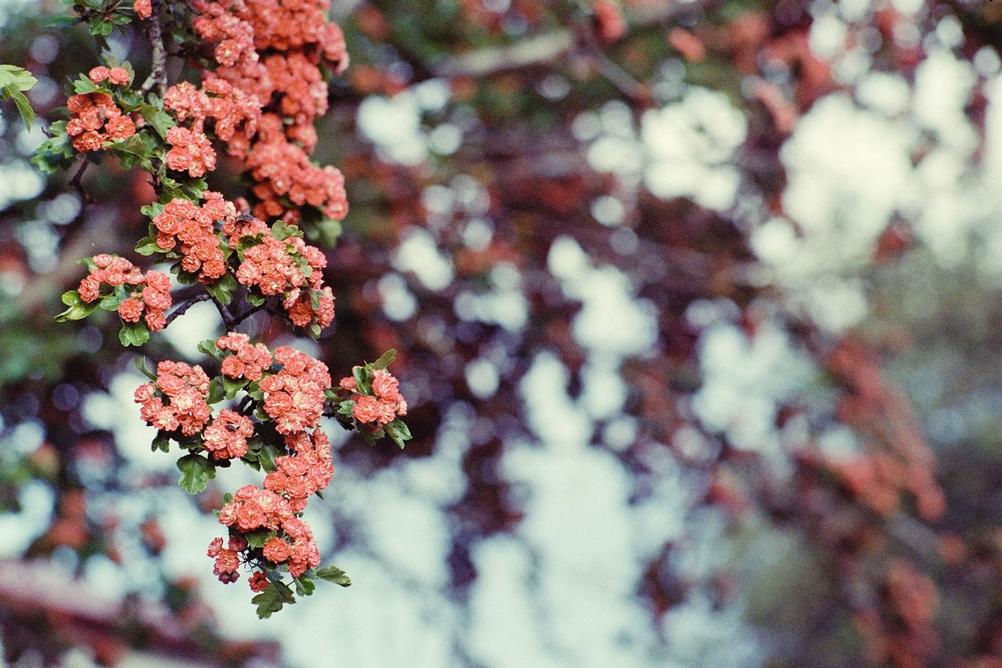Why Do I Still Like Analog Photography In 2021
I have been shooting analog almost as long as I have been shooting in general. I didn't start with an analog film camera but a film camera was the first "serious" camera that I had. It was a Pentax MZ-5 SLR.
Before that I used a digital compact camera. Made by Canon. I am sad to say that I don't remember the model name but it had manual mode!
When I was starting photography, digital cameras were already a thing. But they hadn't been a thing for long enough that a regular, school going person like me could afford one. Even on the used market. Now you can get what I would call a good digital camera + lens for less than hundred euros / dollars / pounds. When I started that wasn't doable. So I bought a film SLR - it was the only thing that I could afford.
Over the years I have shot both analog and digital. Sometimes more analog. Sometimes more digital. For example when I got my first dSLR I didn't shoot analog for quite a while. When I got back to analog photography I didn't shoot digital for quite a while.
Overall I would call myself a solid hybrid shooter. I don't judge anyone whether they shoot one or the other. As long as you're happy and you're creating photos. It's all that matters.
So why have I stuck with analog photography for so long? It seems like something that should've died out. It seems highly inferior to digital. My answer will split analog photography in positives ( haha! ), neutrals and negatives ( haha! ).
Keep in mind that this is all highly subjective. What is true for me won't be true to you or Gwynevere. Also my positives might have a higher weight to me. And my negatives might have a higher weight to you.
Positives
The Cameras
Some might say that the camera doesn't matter. And if subjective preferences weren’t a thing then I would agree. But we all have our personal preferences. Whilst the same end result can be achieved by most cameras - one will tend to produce the best work with a camera that the same one enjoys to use. If only for the reason that more enjoyable things will be used more. More use means more pictures. More pictures means more good pictures. Science.
I care about what I shoot. If the camera doesn't excite me then I will be less likely to use it. If it doesn't feel good to me then I will be less likely to use it. It may even impose strict limitations. I will work around them if the experience of using the camera will be worth it.
Build Quality
There are many, many old mechanical cameras that feel great and solid. The fact that we can still use 60 year old cameras ( and older ) without too many issues proves that they were built to last.
Many of the older cameras also feel solid and hefty. I like a camera with a good weight. Reminds me that I have a camera in my hand!
I'm not saying that all modern digital cameras are poorly built. But more consumer oriented versions definitely feel more loose over time. I would also attribute that to the plastic, electronic film cameras.
Longevity
Most mechanical film cameras last a long, LONG time. I regularly use cameras from the 1950s and they work great. Would I expect a modern digital camera to last 70 years? Even ignoring the battery death and impossibility of finding a replacement - I doubt it. You can already see that in the more modern electronic film cameras. Many of them are starting to die and some of them aren't even 20 years old.
Why does it matter? I don't like waste. I dislike throwaway items. If something can be made to last 100 years then it should be. Stop filling the earth with random waste that only gets used for a few years.
Simple To Use
I am once again focusing on the mechanical cameras. I like simplicity. And you can't get simpler than an old mechanical film camera. There are no menus. There aren't 15 pre-defined and 20 user customisable controls all over the body. All I need is: shutter control; aperture control; focus control. Anything extra is not something I need. I also accept a simple, built in light meter with or without aperture priority.
Many consider film cameras difficult. I don't. You only have to learn about a few controls. Once you know how to use them - you know how to use 90% of mechanical film cameras to their full potential. To learn about digital cameras full potential you have to study a 100 page manual. Or ignore 95% of the features.

All controls on most mechanical film cameras can be seen on a single macro-ish-like shot. All you need and nothing you don't.
Dust is also part of the package.
Shooting Experience
Dislike shooting experience = shoot less. Like shooting experience = shoot more. More photos = the dream. So if we mathematically apply our brains to this concept...
Enjoyable shooting experience = the dream!
No Distractions
I return to simplicity. Because the cameras are simple - there is less to distract. There is no need to think about which auto-focus point to choose. There is no need to think whether the camera is selecting the right ISO. Or if I've selected the right ISO. Histograms and levels. Loads of information thrown in my face.
I'm a simple man. I see something I like, I take a photo of it. I have no desire to micro-optimise the settings to achieve the best histogram the world has ever seen. I don't want any of that in my face or brain. I'll have just the framelines please.
Getting In The Zone
If I put in a black and white film in the camera - I will have to take black and white photos. If I put an ISO 25 film in the camera - I know that I will use either wide apertures or slow shutter speeds. I know the limitations I'm working in and can adjust my shooting process for that.
In digital I can do everything all the time. There's very little limitation. There are all these possibilities that make it difficult for me to know what to focus on. I find that I produce the best results when there are certain limitations imposed on me.
Film Reveal Excitement
Removing the film from the tank or getting it back from the lab and seeing the results for the first time hits your body with that sweet, sweet dopamine. It's like opening a Magic The Gathering pack. The excitement to see what's inside. Sometimes I leave the film undeveloped for a while to forget what's there. To be even more excited to see what's brewing in the tank.
You could mimic this in digital. But I find it difficult to enforce limitations on me. I like if they are forced for me.
No Battery Worries
No need to take many batteries with you. No need to keep them charged. I don't have to worry about batteries dying during the shoot. In mechanical cameras everything is...mechanical. If you have the force required to wind the film and cock the shutter then you will be able to take the photo. One less thing to worry about.
You might say - but your light meter needs batteries. And it's true ( unless you still have a working selenium meter ). But there's always Sunny16.
Experimentation
I find it a lot easier to experiment in analog photography. What would happen if I developed E-6 film in C-41 chemicals? What would happen if I pushed this film by 5 stops? What would happen if I put this red filter on? What would happen if I shot Lomography Purple film?
You can experiment in digital but most of it would be in post. And by that point you can do anything so it's difficult to know what to try. Enforcing limitations before the shooting process make it easier to get into the "limitation zone". I guess I prefer physical pre-limitation instead of digital post-limitation.
Some of the experimentation results can be later applied to digital photography. For example by creating a preset that swaps green color with purple.

- Camera
- Leica M3
- Lens
- Leica Summicron-M Pre-ASPH 90mm f2
- Film
- Kodak Ektachrome EPP100 EI80
- Development
- Tetenal Colortec C-41; E-B&W-41-6
- Scanner
- Reflecta ProScan 10T
Here's an experimentation result of what would happen if E-6 film was processed in C-41 chemicals to still get positives at the end ( I have written about this! ).
The output doesn't suggest experimentation but it was still there. And it was fun.
Black & White
You can get great digital black and white shots. But I have never made one which looks as good as a film black and white. Tonal changes. Grain. The more gentle rendering. It's all more pleasing in analog.
There are digital monochrome cameras. I haven't tried one. I would like to. But even with those the results I have seen look...digital. Very sharp. Clinical. There might be ways to tweak that to better suit my preferences...but I might as well shoot film.

- Camera
- Leica M3
- Lens
- 7Artisans 35mm f2
- Film
- Kodak T-MAX 400 EI200
- Development
- Kodak HC-110
- Scanner
- Reflecta ProScan 10T
I thought that I need to find a pro-level-most-amazing black and white picture that I have taken. But there is no need. Black and white film photos look good - all of them.
This simple scene is made very calm and pleasant. The tonal changes. The grain. A digital shot of the same scene would feel more distant and cold - at least in my head.
Medium Format
Before I had tried medium format photography myself I thought that there wouldn't be a huge difference. And in a way there isn't. But medium format photography often has that "look". That "look" that makes you stare at the picture for longer. The superior subject separation. The detail. That "look" that is hard to describe but at the same time you can feel it through the pictures.
I, once again, have not shot digital medium format cameras. They might deliver something similar. But the clinical nature of digital might ruin the "look" that I want. It's also quite expensive at the moment.
Neutrals
Not everything in analog is better than in digital. Some things are roughly equal.
Post Processing
It might seem that you have to spend less time post processing your photos that are shot on film. Yes and no. Strictly for post processing it's 80% true. But when you consider film development and scanning... then it swings the other direction. I can post-process 36 photos faster than it takes to develop and scan a film. Scanning in itself is like post processing. Especially in color photography.
You could send the film off to a lab to post process it. You could also send your digital files to someone else to post-process them. I like doing it myself. Film development and scanning is part of the whole analog process for me.
Colors
This might be controversial but I don't think color photography in analog land is all that fantastic. I like the color that most film stocks produce. But I struggle with shooting the whole 36 frames in the same color scheme. I'm quite particular with the colors I like for each photo. Having 36 photos in the same style is not something I often need.
I also think that you can get really good colors in the digital world. As long as you post-process them...which you should do anyway.
I'm not saying film colors are bad. They are really good. I just like more variety over 36 frames.
I have to note that color photography is great in medium format thanks to "medium format look". And it's easier to shoot 8 / 12 / 16 photos in the same style.

- Camera
- Leica M3
- Lens
- Leica Summicron-M Pre-ASPH 90mm f2
- Film
- Kodak Portra 400 EI400
Don't you ever quote me saying that "film colors are bad".
Cost
When I started, analog photography was definitely cheaper. At least if you wanted a semi-decent camera. That's not true anymore. You can get a good digital camera for very little money if you are OK with older gear. Which I see no reason not to be. Sure these cameras will die sooner than mechanical film cameras. But they still have plenty of life in them. For most people there is no need to need a latest model. My favourite digital camera is almost 12 years old.
In the analog world the prices are rising. Film is getting more expensive. Cameras are getting more expensive. You can still get film things for cheap and bulk roll Fomapan...but used older digital cameras won't be much more expensive and might even be cheaper.
Negatives
Some things are also worse in analog. Or better in digital.
Chemicals
To develop film you have to use chemicals. You can concoct some chemicals that are not super terrible. But at the end of the day you are dissolving silver - and that silver is not good for the environment. You most definitely want to dispose of it safely and not dump it wherever.
Is this worse than manufacturing a modern digital camera? Most likely not. But still it's something to think about.
Doesn't Fit For Every Style Of Photography
Most obvious negative is that film just doesn't work as well for everything. Even for me. I already mentioned that I often prefer color photography in digital. At least in the sub-medium-format world. What other circumstances would lead me to use digital?
- Sport. I like to photograph cycling from time to time and it's a lot easier in digital. Autofocus definitely helps. As well as higher ISO capabilities.
- Need to get results fast. When the results are needed FAST then plugging in the SD card is very quick. I also don't have to wait until the whole roll is finished.
- Every-day family life documentary photography. Sometimes I need color. Sometimes black and white. Sometimes ISO of 100, sometimes ISO of 3200. Digital is much more flexible. It doesn't require you to have 5 film cameras around with different films within.
Final Words
I love analog. And I like digital. I am a hybrid shooter but analog has definitely affected my photography more than digital. For example - my digital camera choices are dictated by what I like in mechanical analog cameras. That's why I use Leica M9 - it's a very simple camera with a very limited feature set. It's also quite like Leica M3 which is a film camera. That allows me to switch between the two with great ease.
I also take a lot less photos in digital because of analog. I can easily use a 4GB card in a digital camera and not worry about running out of space. Is that always good? No. But I feel like it's a positive as I take more time to think about what I want to shoot. It also saves me time in post processing. And saves disk space.
It also dictates how I want the final results to look. It's safe to say that I try to edit my digital photos to look more like film photos. It's a look that I enjoy!
Is film best for you? Only you will know. But I definitely think that it has a place in this world. If only for a reason to have less waste in the world.
